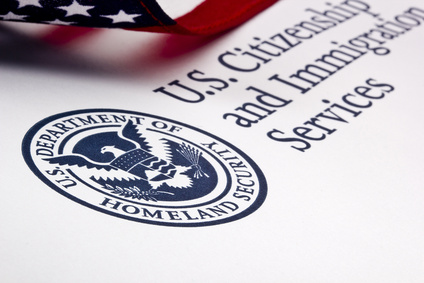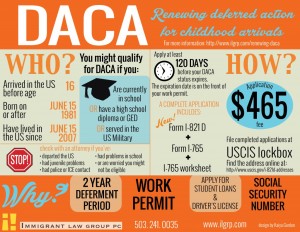DACA policy and Its Recipients
 Photograph of a U.S. Department of Homeland Security logo. https://expertbeacon.com/sites/default/files/Sample%20letter%20for%20apllying%20to%20DACA.jpg
Photograph of a U.S. Department of Homeland Security logo. https://expertbeacon.com/sites/default/files/Sample%20letter%20for%20apllying%20to%20DACA.jpg
Unlike Canada, the United States prides itself in its “melting pot” of cultures. Immigrants are welcome as long as they assimilate to the American culture, language, and values. This has created the rich American culture formed from a variety of cultures adapting to the originally Anglo-Saxon, European roots of America’s first immigrants. The conception of America as a melting pot had a sizeable impact on the last election, and it has left people questioning what will happen next to America’s immigration.
America is now looking at stricter immigration policies under Trump, with the deportation of undocumented immigrants as a central tenant to the program. This has raised concern for the over 700,000 people granted a temporary deportation relief under Obama’s Deferred Action for Childhood Arrivals (DACA) policy. As this policy is not law, it is at risk of being repealed by the more conservative Trump administration. People have entered the US as undocumented immigrants when they were children; therefore, returning to their country of origin will be difficult, especially if they no longer speak the language fluently. By living in America and receiving legal work permits, they have contributed to American society and now call it their home. With Clinton’s loss in this year’s election, the recipients of DACA are now worried that it will no longer continue.

The issue remains controversial as it is uncertain what will happen to these immigrants. While they have legal work permits under the policy, if the program is discontinued, they may not be able to renew their status. Without a due process for them to follow, it will be difficult for them to remain in the US. While it would be unjust to deport them without another option, it would also be unfair to those legal immigrants who went through the system’s processes to simply allow them to remain. Their protests and rallies allow their voices to be heard, but it is ultimately up to Trump’s administration as to what happens next. Hopefully, a fair solution or compromise can be reached that will satisfy both the DACA recipients and the legal immigrants who went through the tedious processes to remain in the US.
